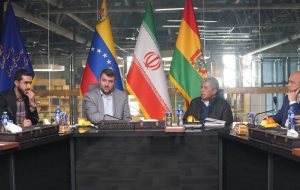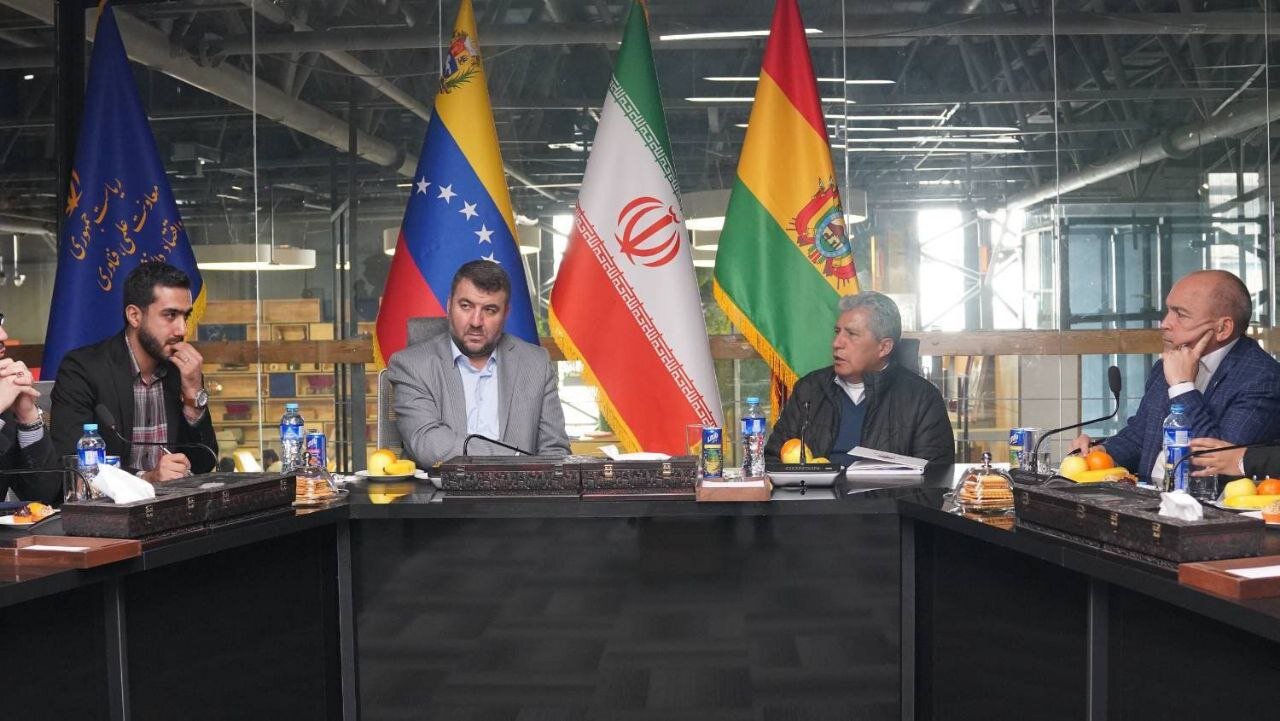Bolivia, Venezuela seek to further sci-tech ties with Iran
TEHRAN –Delegations from Bolivia and Venezuela have paid a visit to Iran house of innovation and technology (iHiT) to explore avenues for boosting scientific and technological cooperation with Iran. The Bolivian delegation, led by defense minister, Edmundo Novello, and the Venezuelan delegation, headed by member of the National Assembly, Francisco Alejandro Torrealba Ojeda, held a


TEHRAN –Delegations from Bolivia and Venezuela have paid a visit to Iran house of innovation and technology (iHiT) to explore avenues for boosting scientific and technological cooperation with Iran.
The Bolivian delegation, led by defense minister, Edmundo Novello, and the Venezuelan delegation, headed by member of the National Assembly, Francisco Alejandro Torrealba Ojeda, held a joint meeting with Hossein Roozbeh, the head of the Organization for the Development of International Cooperation in Science and Technology, on Sunday, IRNA reported.
The Bolivian official, lauding Iran’s significant progress in various fields of science and technology, said that “enhancing scientific ties will be beneficial not only to our countries but also the region and even the world. We appreciate Iran’s readiness to develop scientific and technological relations with different countries. These collaborations will contribute to expertise exchange, economic growth, and improved quality of life in the two countries.”
For his part, the Venezuelan official commended Iran as one of the leading countries in technology, saying, “Iran is a role model for us and we hope to benefit from Iran’s experience and technical knowledge.
Scientific and technological cooperation can help strengthen the industrial and scientific infrastructure of the countries and lay the basis for further growth and progress in the economic and social sectors.”
Roozbeh also announced Iran’s willingness to further scientific, and technological cooperation with its partners, including Bolivia and Venezuela.
Highlighting that Iran is proud of its technological and innovative capabilities, the official said Iran welcomes innovative and technological interactions with no limitations. For sure, the collaborations will bring tangible benefits to participating countries.
The official proposed utilizing the upcoming opportunities to conduct joint projects, enhance sustainable development, and strengthen relations. “We are confident that these interactions can open up new opportunities for the economic and scientific growth of all three countries,” Roozbeh further noted.
Iran targets world’s 12th spot in science production
Despite ongoing sanctions, Iran is planning to elevate the country’s ranking for scientific productions from currently 17 to 12 by 2027.
Due to sanctions, economic restrictions, and the limitations on publishing papers by Iranian scholars, particularly during the last three years, Iran’s ranking in scientific productions has lowered from 15 to 17, Shahin Akhoundzadeh, an official with the health ministry, has said.
The country’s advancement in science production requires compensating for the regression in research and technology through providing funds, facilitating research, and promoting meritocracy which will reduce young elites’ migration, as well, the health ministry’s website quoted Akhoundzadeh as saying.
Scientific associations grow by 23%
The number of scientific associations as one of the pillars of science in the country has increased from 322 in the Iranian year 1392 (2013 -2014) to 396 last year (ended on March 19), signifying a 22.9 percent growth.
Interdisciplinary and humanitarian associations have experienced the highest growth. Within a decade, the number of interdisciplinary and humanitarian associations has increased from 50 and 102 to 85 and 142, respectively, IRNA reported.
Scientific associations have always played an essential role in producing knowledge and achieving scientific development.
They are the main foundation of institutions beyond political, racial, ethnic, religious, and sexual boundaries.
Scientific associations have emerged in response to the needs of the world of democracy and the enhancement of human solidarity. They have also created an appropriate environment for free thinking and the establishment of a culture of conversations.
Their Independence from governments in finance and human resources, speed of action, high decision-making power, limited bureaucracy, and flexible mechanism bolster their efficiency at national and international levels.
According to data released by Scopus, Iran published 78,225 scientific articles in this database in 2022. Accordingly, Iran is ranked 15th in the world in terms of publication of scientific works for the fourth consecutive year.
Scopus data in 2022 shows that Iran ranks first among countries in the region in terms of the number of scientific publications.
MT/MG
